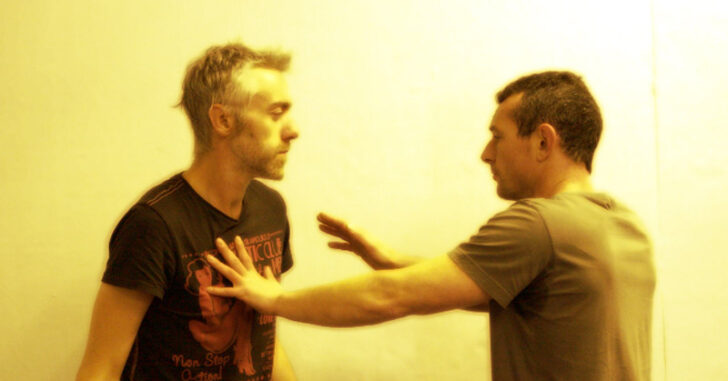When someone presents themselves as a clear threat to your life, that of your family members, or your property – you have an obligation to defend yourself. But reality is full of nuance. Sometimes it’s hard to tell whether a conflict is imminent or if it can be averted.
When should a concealed carrier attempt to de-escalate a conflict?
The only time de-escalation is a great idea is if deadly force is not an appropriate response. For instance, if a concealed carrier is part of a verbal altercation that seems to be escalating, it’s certainly in both parties’ interest to calm the situation. That’s where it takes a mature, responsible adult to know the limit.
Communicate
Someone who is scared or feels he must act is more likely to act impulsively. If you’re able to talk someone back from a brash or violent action, you’re helping. If you’re able to establish a dialogue, you’re one step closer to walking everyone out of a potentially dangerous situation.
Attempt To Leave
If you have the power to leave a potential conflict before it starts, you’re in control of the situation. And if you’re in control of the situation and it escalates to deadly force – that’s horrible. “Sticks and stones may break my bones but names will never hurt me.”
You’re an adult. And part of being an adult is keeping the peace. Who cares if somebody has dumb ideas or is calling you names? You can be the bigger man and leave.
If it’s someone you know who’s in the verbal altercation and things could get out of hand, if you’re able to get him or her out – that’s great. Sometimes we all can get a little carried away but being brought back to reality and out of a potential conflict can be a life-saving measure.
Attempt To Contact Authorities
If someone is acting erratic or disruptive but may not constitute a direct threat to anyone (yet), call the police. Unfortunately, there are a lot of people who may seem erratic or violent but constitute very little threat to bystanders. It’s definitely hard to know if you’re unfamiliar with the person. Police often times know people in the community who suffer from mental illness and can attempt to get them help. This doesn’t mean you shouldn’t continue to maintain observation. You are attempting to keep yourself and bystanders safe without prompting confrontation.
Know The Limit
Trying to de-escalate a potential conflict is a tricky situation. People can act extremely erratic and unpredictable. One moment you may think things are moving smoothly and the next they just fall apart. Keep yourself and your family a safe distance to where if you need to react – you can.
If a person swings, kicks, pulls a knife or a gun or an improvised weapon, tosses an object, or advances upon you or your family in a threatening manner – that could constitute a clear and present threat to your life and if it does, you’re free to act accordingly.
Don’t take chances but on the same token, be open to consider more peaceful options if they present themselves prior to deadly force being necessary.

